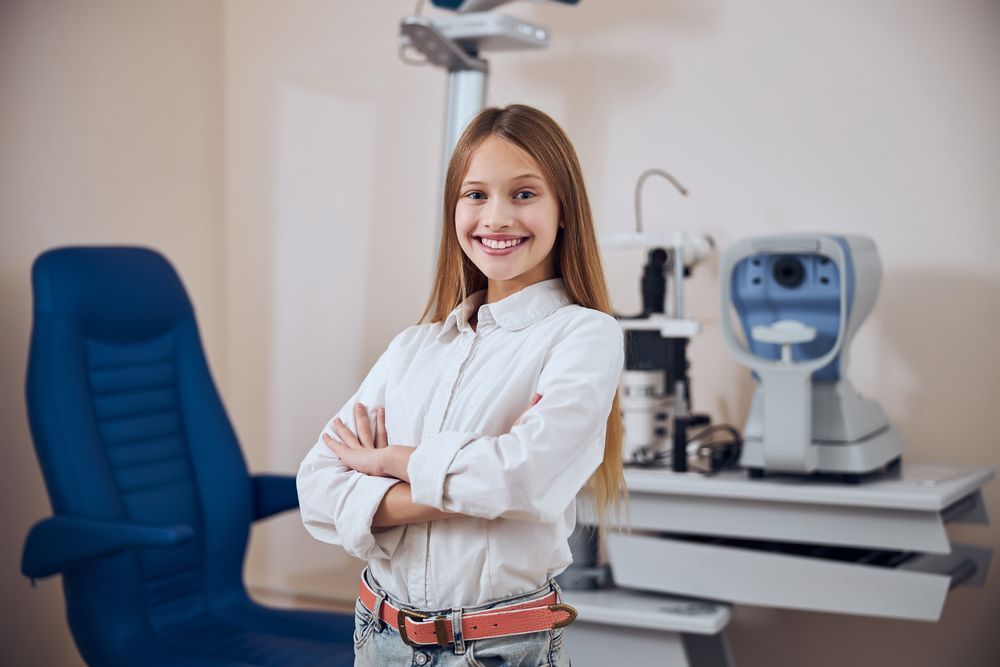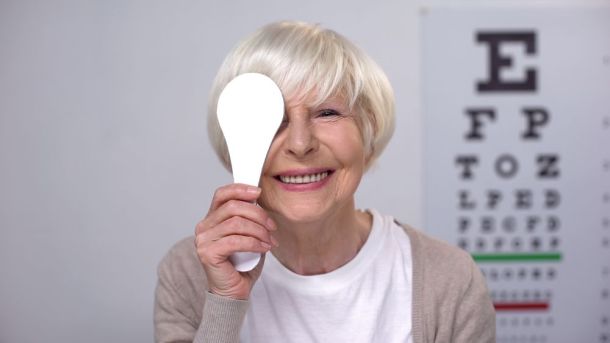WHAT TO EXPECT DURING A PEDIATRIC EYE EXAM
The American Association for Pediatric Ophthalmology and Strabismus recommends starting pediatric eye exams early. Regular eye checks allow children to get used to seeing an eye doctor, allowing children to form good eye care habits. Knowing what to expect during a pediatric eye exam can help you prepare yourself and your child for it. Here are the details.
FOR INFANTS – SIX MONTHS TO TWO YEARS
You must bring your baby in for a pediatric eye exam at six months of age. Your eye doctor will check for specific aspects of normal vision. Early eye exams can help your child maximize the formative years.
Below are some of the important tests that your eye doctor will perform:
- Preferential looking measures your baby’s eyesight. Your eye doctor will use special cards to attract your baby’s attention.
- Pupil responses measure the opening and closing of the pupils with and without light.
- Follow and fixate measures your child’s ability to follow and fixate on an object while moving it. Fixating starts developing during the first month of life. Following an object often starts developing
by three months of age.
FOR PRESCHOOLERS – TWO TO FIVE YEARS
Preschool children love to draw, color, and play with Lego. This is the time to prepare your child’s eye and vision health. Clear vision is important for schooling. Your eye doctor will perform tests such as
visual acuity, color vision, and 3D vision. Also expect tests to check for lazy eye, convergence, and eye tracking.
FOR OLDER CHILDREN – SIX TO 18 YEARS
This pediatric eye exam is much like the tests for a younger child. This series of eye tests for older children will need additional. This is important for older kids who play contact sports, read, and write.
Visual perception is one of the tests of a pediatric eye exam for this age range. This test measures the child’s ability to organize images on a single page into different ideas, letters, and words. The child
should be able to differentiate the letters. Then, the child must be able to visualize the story. After reading, the child must also be able to recall the information.
PREPARING FOR THE PEDIATRIC EXAM
You should help your child remain calm and relaxed before and during the eye exam. You can tell your child to bring a toy or book. Calling ahead will help you determine if there are any changes to the
schedule. You should avoid giving your child a nap or meal before the pediatric eye exam so that your child can be fully awake.
Search different videos of kids who are going through pediatric eye exams. This can help orient your child about what really happens during this exam. It is also helpful if you make a list of your questions
about the pediatric eye exams. Prepare to share more about your child’s health history as well.
Understanding what to expect during a pediatric eye exam can help you and your child prepare for the set appointment. At Eye Health Consultants, we always make sure that our patients are well-prepared for
their eye exams and treatments. Feel free to drop by our clinic in Spring, Texas, for an in-person consultation. Call 281-419-3355 to set an appointment or ask about our pediatric exam packages.

It is with great pleasure that we welcome you to our specialty eye care home. Eye Health Consultants provides patients with premium eye care and management of eye conditions such as Glaucoma, Anterior Segment Eye Disease, Pink Eye Treatment, Dry Eye Syndrome, Macular Degeneration, and Non-Surgical Vision Correction.








